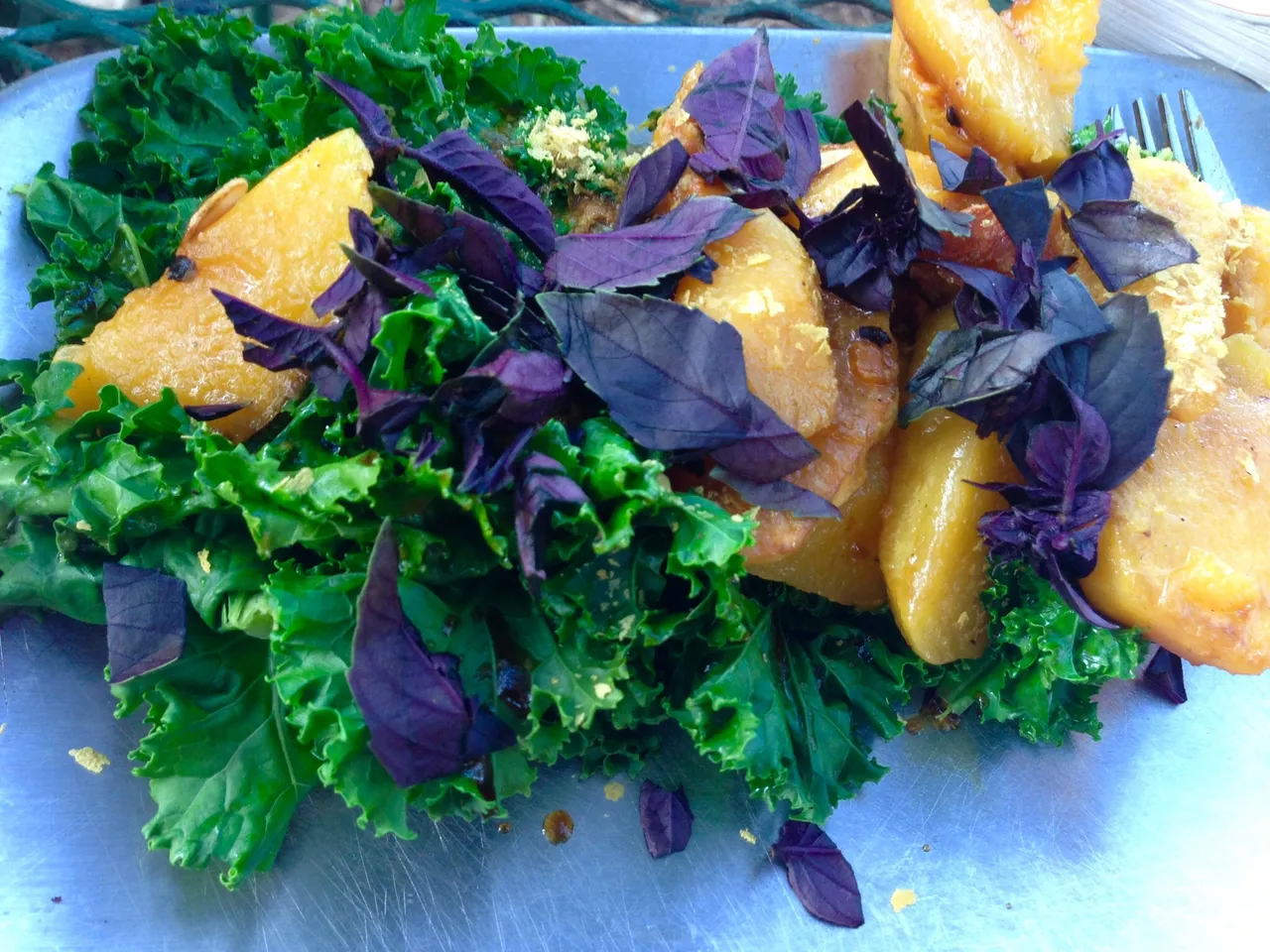
I was a strict vegan for eight and a half years. I didn’t grow up this way, but my culture made me do it... I grew up thinking potatoes and ketchup were sufficient vegetable content to make an almost carnivorous diet balanced and that drinking a half gallon of coke slushy wasn’t ridiculous. At 19 after landing in Bangkok 2 days prior I had a dream that literally turned me vegetarian overnight. I almost didn’t believe myself when I said I’m going to stop eating meat, but just like that I did. Once I was introduced to concepts of karma, the spiritual effects of diet and the numerous atrocities of the BIG AG animal industry I was hooked.
Somewhere along my yearlong sojourn though South East Asia, I dropped fish, eggs and dairy. I returned home on a very different trajectory than the one I left on.
I dove into all things vegan and health related. I literally devoured books and articles, tried out recipes, started sprouting (which led me write a published a book on the topic), developed an interest in local foods that guided me to apprentice on an organic farm. I even went raw for a year (about 80% of my diet, and up to 100% for a few months). I was totally stoked on the vegan way of life and believed that the high vibrancy of a plant based lifestyle was going to shift the consciousness of the planet. It was also very important to share the things I had learned about the ill effects of the SAD (Standard American Diet) and the awesome experience I was having. Also to elucidate how horrible our animal agricultural system was for the animals, people and the planet. Something had to change, and it was meat. Although I did my best to avoid the sometimes preachy nature of vegans I often encountered I’m not sure I always did so well at that…
My first real taste of meat was moose. The folks around me joked that vegetarians are know as bad hunters. I checked in through muscle testing when offered, and my body said YES. I could feel the wildness, and I needed it. I knew immediately that this was something powerful, worthwhile and nourishing. The wild meat sated something deep and primal that could not be quantified in the Nutritional Facts on the side of a package. What I felt was real food, and it connected me to my body, my life and the environment around me; something bigger than human created food systems.
After my first wild game experience, I still maintained an exclusively plant based diet for several years. Like a good vegan, I was careful to include ample protein (I relied heavily on sprouted seeds and nuts), ate plenty of omega 3s (lots of flax and hemp seeds), avoided unfermented soy products (I ate lots of miso), and even supplemented bioactive B12. I still felt something was lacking. My energy and stamina weren’t what I wanted them to be, and wondered what was missing. I felt a void.
It was pastured butter that first filled that void. I knew that something that tasted and felt this fantastic couldn’t be wrong, but still wondered about the animals that produce the food we eat. There was something special I felt in this butter produced by supposedly happy cows fed on healthy pastures. In reading research popularized by Sally Fallon in Nourishing Traditions (originally conducted by Weston A. Price) I realized that that something was the X factor missing in my diet, Vitamin K. It is fat soluble vitamin found only in the fat of animals raised on the natural varied diet of pastures. Since that first taste of butter, I haven’t looked back.
I now am a happy omnivore, although I am still guided strongly by ethics and values for fair treatment of people and animals and care of the Earth. I still don’t eat meat that wasn’t hunted or consciously raised by someone I know and trust. I raise chickens and goats. A new layer of eating has emerged for me as I endeavor to be more autonomous in food production and am establishing a permaculture homestead. I may be 10 years away from harvesting the chestnuts from the trees I planted this fall, but I can easily catch a 10 ½ pound armadillos and sup on the delicious fatty meat. Growing and hulling sunflowers isn’t as practical as raising and eating chicken who eats grubs and greens from our land.
In summation I’m deeply grateful for my food journey and where it’s taken me. I’ve learned there are so many difficult choices in a complex world, and there’s never one right answer, there are sometimes many. I’m excited to see what this next phase of land based living brings as the co-evolution of human and land continues.
Follow Mountain Jewel as I post more about forays into apiculture, food foresting, wildcrafting, raising animals, fruit production, natural building and more.